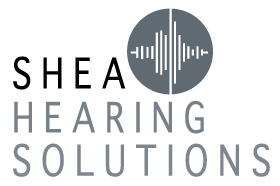What is Conductive Hearing Loss?

Statistics show that hearing loss affects one in three people over the age of 65. What’s more, according to the World Health Organization, unaddressed hearing costs S$ 750 billion annually. Interventions to prevent, identify, and address hearing loss can greatly help people struggling to hear in their day-to-day lives. That’s why if you are experiencing any changes in hearing, it is imperative that you schedule an appointment with a doctor.
What is Conductive Hearing Loss?
Conductive hearing loss happens when sounds can’t get through the outer and middle ear. A conductive hearing loss happens when the ear’s ability to conduct sound from the outer ear and middle ear into the inner ear becomes blocked or reduced. The sound passage gets blocked from blockages or damaged anatomical structures in the outer ear, ear canal, or middle ear. Here are some of the factors that cause conductive hearing loss:
- Fluid in the ear
- Earwax buildup
- Ear formation
- A perforated eardrum from an injury or infection
- Ear infections
- A foreign object stuck in the ear
- Ahead or ear injury that damages the structures of the outer or middle ear
- Tumors
- Hole in the eardrum
- Otosclerosis (an abnormal growth of bone in the middle ear)
Symptoms of Conductive Hearing Loss
The symptoms of conductive hearing loss include:
- Sudden or unexpected hearing loss in one or both ears
- Muffled hearing
- Feeling like the ear is full or stuffed
- Struggling to hear soft sounds
- Clear or yellow ear drainage
- Ear or head pain
- Dizziness, difficulty balancing
- Chronic ear infection
The degree of conductive hearing loss can range from mild to profound.
Mild hearing loss: If you are experiencing mild hearing loss, you can hear some speech sounds, but soft sounds are difficult to hear.
Moderate hearing loss: If you are experiencing moderate hearing loss, you may hear nearly no speech when someone is talking to you at a normal level.
Severe hearing loss: When experiencing severe hearing loss you don’t hear any speech when someone is talking at normal level and you only hear some loud sounds.
Profound hearing loss: If you have profound hearing loss, you will not hear any speech and only extremely loud sounds.
Hearing loss can be also be described as the following:
- Unilateral (hearing loss in one ear) or bilateral (hearing loss in both ears)
- Pre-lingual (hearing loss occurred before you learned to talk) or post-lingual (hearing loss occurred after you learned to talk)
- Symmetrical (hearing loss is the same in both ears) or asymmetrical (hearing loss is different one each ear)
- Progressive (hearing loss worsens over time) or sudden (hearing loss happens suddenly)
- Fluctuating (hearing loss gets better or worse over time) or stable (hearing loss stays the same over time)
- Congenital (hearing loss present at birth) or acquired/delayed onset (hearing loss appears later in life)
Treatment of Conductive Hearing Loss
The good news is that conductive hearing loss can be treated using medicine or surgery. Your doctor will perform a comprehensive hearing test to determine the cause and severity of the hearing loss you are experiencing. The hearing test will show you and the doctor exactly what sounds you are missing and identify the cause of the hearing loss. Here are the most common treatment options for conductive hearing loss:
- Surgery: Surgery may fix conductive hearing loss caused by the congenital absence of the ear canal or failure of the ear canal to be open at birth, congenital absence, malformation, or dysfunction of the middle ear structures (from head trauma, for example), and otosclerosis. Tumors usually require surgery.
- Amplification: This may be a solution when used with a bone-conduction hearing aid, or a surgically implanted, osseointegrated device, or even a conventional hearing aid. The specific treatment option will depend on the status of the hearing nerve.
- Antibiotic or antifungal medications: These are used to treat chronic ear infections or chronic middle fluid.
Treating Conductive Hearing Loss with Hearing Aids
Some conductive hearing loss cases can best be treated with a quality pair of hearing aids to help you better hear the world around you. Hearing aids today are sophisticated digital devices that analyze the sounds around you, amplify sounds you may struggle to hear, and help you focus on important speech sounds. They also reduce distracting background noise.
For all of your hearing needs in Memphis, contact Shea Hearing Solutions of Memphis. The clinic’s missions are to provide excellence in hearing healthcare, using only the most advanced diagnostic testing equipment.


